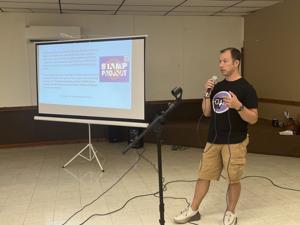Residents of Oakfield, Alabama, expressed significant concerns on March 12, 2024, regarding the ongoing developments at the Science, Technology and Advanced Manufacturing (STAMP) site. During an evening meeting, community members raised issues related to various projects being attracted to the area, prompting a series of petitions aimed at ensuring local voices are heard.
The gathering, attended by numerous residents, served as a platform for voices to be amplified. Attendees signed petitions requesting that the Genesee County Economic Development Center organize a town hall meeting. The purpose of this meeting would be to provide a forum for community members to ask questions and seek clarity about the impacts of STAMP on their local environment and economy.
One of the primary concerns raised by the residents is the potential environmental impact of STAMP’s wastewater management on the Oak Orchard River Watershed. Residents have urged Orleans County elected officials to take protective measures to safeguard this vital water resource from any adverse effects linked to the STAMP site.
In addition, the proposed construction of a data center at STAMP has drawn opposition from the community. Many residents fear that the data center could exacerbate existing concerns related to environmental sustainability and local infrastructure strain. The residents emphasized the need for transparency and accountability from both local government and developers involved in the STAMP projects.
In response to the community’s outcry, local officials have indicated that they are committed to addressing these concerns. The Genesee County Economic Development Center is expected to consider the request for a town hall meeting, which would allow residents to engage directly with decision-makers and express their opinions on the future of STAMP.
As the developments at STAMP continue to unfold, community members remain vigilant. They are eager to ensure that their voices are included in the conversation surrounding projects that could significantly impact their lives and environment. The outcome of this community engagement may set a precedent for how local developments are approached in the future, emphasizing the importance of public input in economic planning.







































































